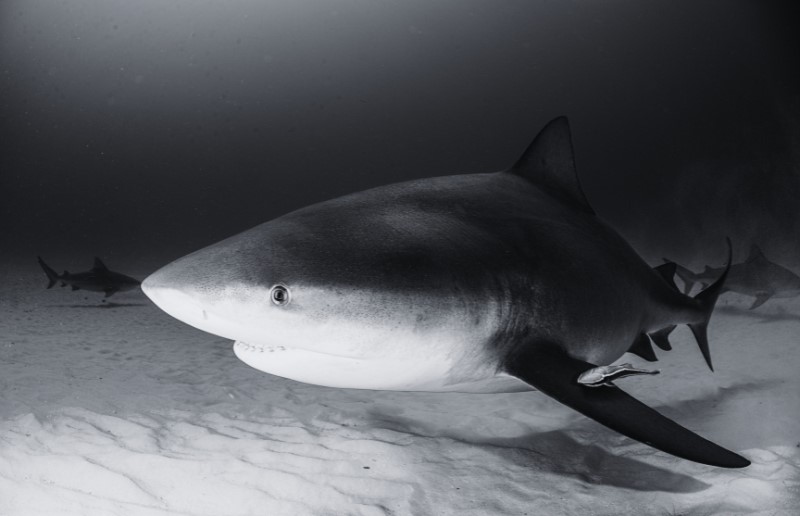Remember that time in 2019 when Forrest Galante, the intrepid adventurer known for his show Extinct or Alive, appeared on the Joe Rogan Experience podcast? During the conversation, he spun a chilling tale, claiming that bull sharks, those infamous predators known for their aggression, had somehow infiltrated the Great Lakes. It was a story that had swimmers reconsidering their dips and boaters double-checking their propellers. But was it true? Spoiler alert: Not a chance! Let’s plunge into the depths of this podcast-fueled hoax and explore the reality of sharks in our beloved Great Lakes.
The Galante Gambit on the Joe Rogan Experience: A Shark Tale Spun Out of Control
During his appearance on the Joe Rogan Experience, Galante suggested that bull sharks, remarkably adaptable creatures though they are, had not only entered the Great Lakes but were thriving in freshwater. He presented supposed evidence of these apex predators making themselves at home in the heart of North America, triggering a media maelstrom and widespread panic.
However, the scientific community wasn’t buying it. Experts swiftly debunked Galante’s claims, highlighting the glaring inconsistencies and lack of credible evidence. Bull sharks, while capable of tolerating some freshwater, simply cannot survive the frigid winters of the Great Lakes. Their bodies are designed for warmer climates and their survival depends on a saltwater environment to maintain proper bodily functions.
The Real Story of Sharks in the Great Lakes: A Fantastically False Narrative
So, are there any sharks cruising around those shipwrecks you love to explore? The answer is a resounding no. The Great Lakes are a freshwater ecosystem, making them an inhospitable environment for saltwater-dwelling sharks.
While there have been a few isolated instances of dead sharks washing up on Great Lakes shores, these are often the result of pranks, misidentified fish, or the accidental release of captive sharks. There is no scientific evidence to support the existence of established shark populations in the Great Lakes.
The Great Lakes: A Shark-Free Sanctuary
Several factors contribute to the absence of sharks in the Great Lakes:
- Freshwater Woes: Sharks are primarily saltwater creatures, and their bodies are not equipped to regulate salt levels in freshwater. This imbalance can lead to organ failure and ultimately, death.
- Temperature Troubles: The Great Lakes experience extreme temperature fluctuations, with frigid winters that would prove fatal for most shark species. Sharks prefer warmer waters where their metabolism functions optimally.
- A Limited Buffet: Sharks are apex predators with voracious appetites. The Great Lakes lack the abundance and diversity of prey that sharks need to thrive.
- Physical Barriers: The Great Lakes are landlocked, with numerous locks, dams, and waterfalls preventing sharks from entering from the ocean. Even the most determined shark would find it nearly impossible to navigate these obstacles.
Worry Not, Adventurers!
The next time you gear up for a dive in the Great Lakes, you can confidently leave your shark worries on shore. The real treasures of these vast bodies of water aren’t the stuff of nightmares. Instead, they’re the historic shipwrecks, the diverse freshwater fish species, and the stunning geological formations that make the Great Lakes a unique and captivating dive destination.
Explore the Depths with Double Action Dive Charters
Ready to experience the wonders of Great Lakes diving without the fear of shark encounters? Double Action Dive Charters is your trusted guide to the region’s most fascinating dive sites. We offer a variety of trips catering to all levels of divers, from beginners eager to explore their first shipwreck to seasoned pros seeking new challenges. Join us for an unforgettable underwater adventure and uncover the true treasures that lie beneath the surface of the Great Lakes!

